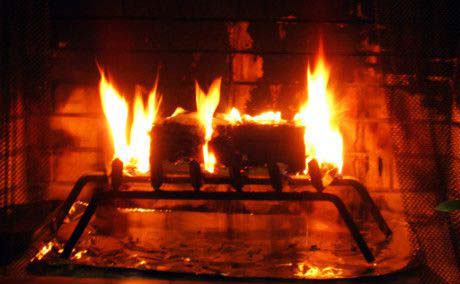The Healing of Yule: Winter Solstice Symbolism & Wholeness

My last post focussed on Holiday Depression and Stress , but there’s also a genuine representation of healing embodied in the winter solstice symbolism of the Yule.

Yule Log – Symbol of the Return of the Sun
Yule, the ancient festival associated with the time of the winter solstice, contains symbols of wholeness that are native to the traditions of ancient Northern Europe, but which are also found throughout varied cultures of the world. From a /a-midlife-transition perspective, much of this symbolism appears to be rooted in themes deep within the human psyche (which Jungians would call archetypal.)
The Yule; The Wheel
The term “Yule” originally meant “wheel” and the Yule season was associated with the ending and beginning of a rotation of the wheel of the year, the year being viewed as both starting and beginning at the time of the winter solstice, and rotating through the various seasons and the signs of the zodiac. Below is a picture of the pre-Christian North European year as viewed as a “yule” or wheel, and beginning and ending with the Yule season:

Wheel symbolism is very ancient, and especially the imaging of the heavens as a wheel. As shown by the famous Medicine Wheels of the Plains First Nations of North America, it long predates the actual physical wheel, as archeologist John Freeman relates of the famous Majorville, AB medicine wheel, in his book Canada’s Stonehenge.

Medicine Wheel, Bighorn, Wyoming
From a /a-midlife-transition perspective, the wheel shares in the symbolism of the circle, which is itself the most basic form of mandala, or symbol of wholeness. The wheel symbolizes eternity; the revolving heavens, and at the center, beyond the rotating perimeter, something that does not move.
The Yule as the Wheel of the Year is a symbol of all that moves and changes in the nature of the Self, and also of the fact that there is something constant and unchanging, right at the heart of our being.
The Tree
The Christmas tree, as an evergreen, symbolizes enduring and renewed life, and can also be a symbol of fertility and immortality. Furthermore, what we know as a “Christmas tree” is actually a a tree associated with the Nordic Yule, and it symbolizes the Yggdrasil from Norse mythology.

World Tree
The Yggdrasil is the world tree. It consists of the whole of the universe as the Nordics conceived of it, including the realm of the giants, the realm of the gods, and the realm that we call home. This idea of an enormous tree that holds the entire universe is not unique to the Norse. It is found in many cultural contexts around the world.
For Jung and later /a-midlife-transitions, the tree is also a symbol of the Self. In myth, humans often transform into trees, and there are many ways in which trees and humans resemble each other. Trees have upright trunks; we have upright backbones. The image of the tree that grows from a small seed or acorn into an enormity is often an image of the human journey of growth and individuation.
So, each “yuletide”, we bring this symbol of growth and individuation in our homes. As we travel the wheel of the year, and return to this place, we are reminded of our own resilience, the places in our lives where decay is followed by renewal, and the growth toward what it is that we really, fundamentally, are.
Journey toward our true identity is at the core of /a-midlife-transition.
With best Holiday wishes,
Brian Collinson, Registered Psychotherapist & Jungian Analyst
[cta]
